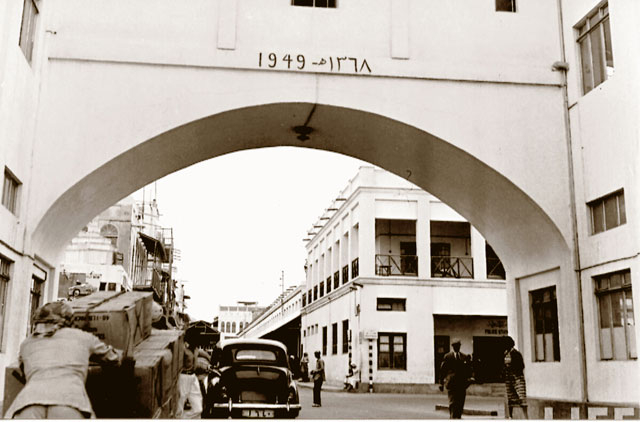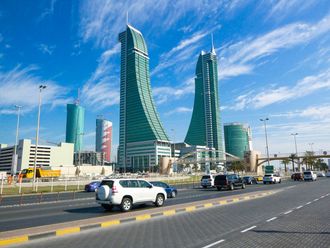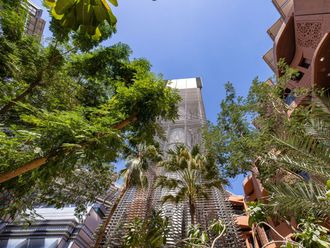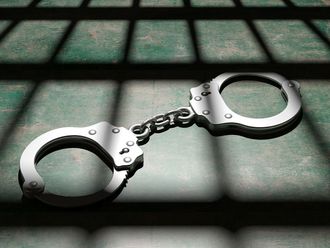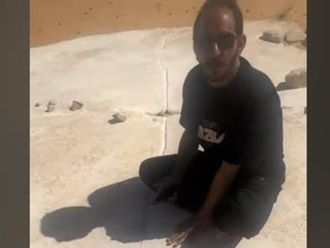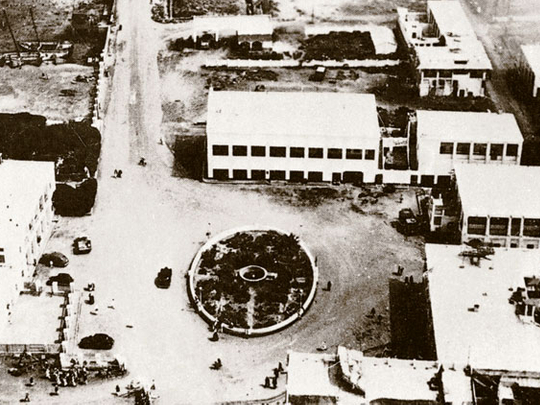
A heavy dust storm has settled over Bahrain. In downtown Manama, red and green neon lights hang above buildings, advertising hotels, nightclubs and cheap restaurants. Their flickering colours cut through the dense darkness and biting beigeness like lighthouses on a sea of dust — beacons to those plying the streets below of the bargains on offer.
Maybe three decades ago, downtown Manama was simply chic. Now, it is simply cheap. Jaded from years of being over-shone by Dubai, Abu Dhabi and Doha, the streets are crowded, confused — and conflicted. In the past year, the Kingdom of Bahrain has been jolted by anti-government demonstrations and protests causing the deaths of more than 60 people. And the violence has affected tourism and business, with Bahrain's gross domestic product down 4 per cent in the past year as a direct result of the violence. And given that the King Faisal Causeway has been closed on several occasions for prolonged periods, Manama's lifeblood of weekend visitors from Saudi Arabia has turned into a trickle.
"Business is down at least 25 per cent on last year," notes one Indian manager of a tired-looking hotel close to the downtown gold souq. "The Saudis are still not coming and there haven't been many tourists. It's mostly Americans from the naval base."
Bahrain is home to 30,000 US military personnel associated with the Fifth Fleet. Their onshore proclivities along with Manama's many nightclubs make the city short on culture, long on the seedy side. "There are many Americans in town right now," Maki, a taxi driver and former policeman, told Weekend Review. "Now it is very busy outside the bars and nightclubs. They are coming from Iraq and it is good for business now. But before, it was too quiet — too many problems in Bahrain."
Given the lack of real tourists in the past year, the Government of Bahrain has declared 2012 the year of Arab culture. Its Ministry of Culture has organised a year-long programme of cultural events to try and win back visitors.
This month, leading architects from around the world will try to figure out just how to improve public spaces in the Arab world — and in Manama in particular. Pritzker Award-winning architect Rem Koolhaas will give a talk on how recent events across the Middle East are influencing the field of architecture.
Bahrain's Ministry of Culture has organised an "open ideas" competition for the re-design of the Bab Al Bahrain Square area north of the King Faisal Highway.
"Open spaces contests," Ebrahim Al Bakr, a resident of Sitra, said as he sipped from a glass of sweet tea at a café in the old city. "The only open space we want is Pearl Roundabout."
The roundabout was the epicentre of anti-government demonstrations and protests for six weeks last February and March, before it was demolished as part of a security clampdown. "If the government wants to talk about open spaces, let it sit and talk to Al Wafaq and talk about giving us open spaces. What is this nonsense?"
Al Wafaq, the main opposition political society in Bahrain, has declined to participate in a number of reforms and initiatives launched by the Bahraini government in the past year to try to temper the protesters' calls for greater political participation. On Government Avenue, a cold and largely deserted area of Manama at night, vehicles of Bahrain's security forces are parked while officers patrol at a checkpoint. This street is home to the kingdom's most important ministries and is close to the city's diplomatic district. And it is here, on Government Avenue, that the Ministry of Culture has designated a pedestrian zone for evenings and weekends. Given the sandstorm that was swirling around Manama, there were few pedestrians venturing into the street, fewer still willing to stop and savour the car-less thoroughfare.
A gala concert at the National Museum last weekend to formally kick off the cultural celebrations was buffeted by strong winds which made for a cold evening's entertainment for performers and audience alike. A heavy security cordon surrounded the cultural event on the city's sea shore. On stage, artists, singers and dancers from across the Arab world and Bahrain celebrated the kingdom's proud history as a pearling centre in song and choreography.
Just blocks away, security forces were also kept busy by anti-government demonstrators protesting near Sulmaniya Hospital. And back at the Bab Al Bahraini's area, a mall had to be shut down because a tear gas canister was set off in a nightclub, forcing the evacuation of the patrons enjoying Manama's more mainstream culture.


